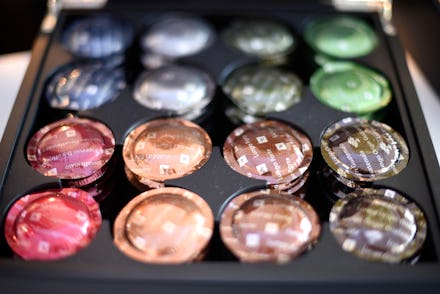Former Nespresso CEO says coffee pods are killing the environment

Coffee pods are killing the environment, and even the former executives at Keurig and Nespresso admit it.
Aluminum Nespresso pods are not biodegradable — meaning that if not recycled, they sit in landfills for 150 to 200 years without degrading, the Australian Broadcasting Company noted.
"It will be a disaster and it's time to move on that," Jean-Paul Gaillard told ABC. Gaillard started Ethical Coffee Company a rival company that makes biodegradable pods that are compatible with Nespresso machines. "People shouldn't sacrifice the environment for convenience," he said.
Gaillard isn't the first coffee pod exec to speak out against conveniently packaged single-serve coffee. When interviewed by the Atlantic in March 2015, John Sylvan, who invented the Keurig machine, said he regretted inventing a gadget that generates so much waste.
"I feel bad sometimes that I ever did it," Sylvan said.
Plastic pods brew environmental trouble
According to the campaign "Kill the K-Cup," Green Mountain Coffee, which owns Keurig, sold enough pods in 2013 to circle the Earth's equator 10.5 times. The Atlantic pointed out that this number might be low — Keurig actually manufactured enough pods to circle the equator 12 times.
K-cups, like Nespresso pods, are not biodegradable. Most K-cups are made with #7 plastic, a type that's only recyclable in a few cities in Canada, the Atlantic noted.
And while Keurig introduced "recyclable" pods in April 2016, a user would have to wait for the pod to cool down, peel off the foil top, dump out the grounds from the pod and then recycle the plastic shell made from recycle-friendly #5 plastic.
Seems like a whole lot of work for someone who bought a machine for the sake of convenience. Plus, Keurig is still selling billions of plastic pods that aren't reusable.
"When you look at the trends toward single-serve generally, you can either villainize it, or you can fix it," Monique Oxender, Keurig's chief sustainability officer told the New York Times. But still, recycling the pods can't exactly mitigate the environmental costs of manufacturing billions of individual capsules in the first place, Darby Hoover, a senior resource specialist at the Natural Resources Defense Council, told the Times.
Nespresso also makes attempts of environmental goodwill: The company encourages customers to send the pods back Nespresso by offering recycling bags with prepaid postage.
What happens once Nespresso receives the used aluminum pods? The company ships the pods to Ag Choice, an organization that separates the coffee grounds from the aluminum casing and recycles the aluminum into products like window frames, bicycles and cars, a Nespresso spokesperson told Mic in an email. The company declined to share an estimate of what percent of pods get recycled, but stated that it focuses on making recycling as easy as possible for consumers.
Single serve coffee doesn't have to be ruinous.
Coffee didn't need a Keurig revolution; the French press can brew a delicious single cup of coffee, no plastic waste required. And AeroPress, a single-serve coffee maker that functions like a push pop for brewed coffee, doesn't generate a fraction of the waste of a Keurig.
Want to be even more Earth-friendly? From helping fertilize gardens to cleaning dirty pans, there are plenty of ways to compost or repurpose coffee grounds.
You can have your caffeine and drink it, too — just don't let your coffee addiction dupe you into buying and using destructive, unnecessary devices.
Aug. 25, 2016, 10:18 a.m.: This article has been updated.